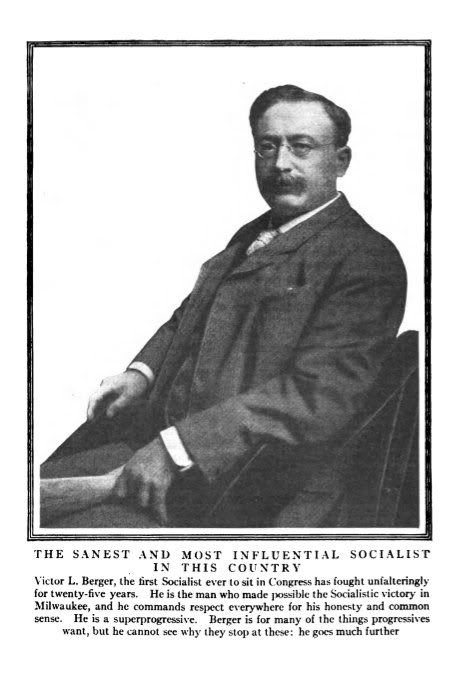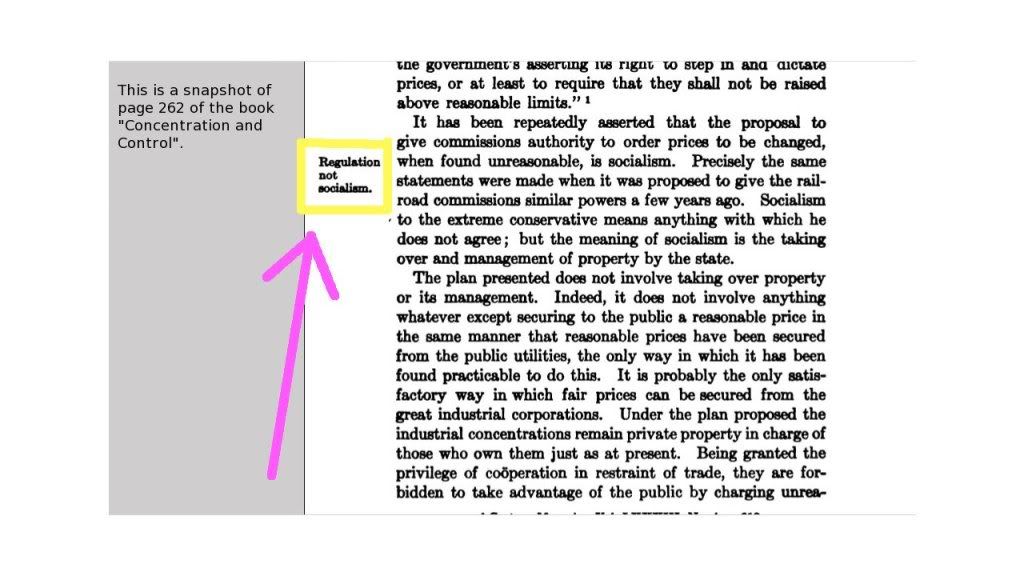It was economic government by anybody's economic philosophy, though it was supposed to be controlled by immutable laws of political economy that must in the end produce harmony. It produced many splendid things, but enough sordid and terrible ones to start counter-currents. One of these was the trust, which established a kind of Roman peace within industry, and a Roman predatory imperialism outside. People turned to the legislature for relief. They invoked representative government, founded on the image of the township farmer, to regulate the semi-sovereign corporations. The working class turned to labor organization. There followed a period of increasing centralization and a sort of race of armaments. The trusts interlocked, the craft unions federated and combined into a labor movement, the political system grew stronger at Washington and weaker in the states, as the reformers tried to match its strength against big business.In this period practically all the schools of socialist thought from the Marxian left to the New Nationalists around Theodore Roosevelt, looked upon centralization as the first stage of an evolution which would end in the absorption of all the semi-sovereign powers of business by the political state. The evolution never took place, except for a few months during the war. That was enough, and there was a turn of the wheel against the omnivorous state in favor of several new forms of pluralism. But this time society was to swing back not to the atomic individualism of Adam Smith's economic man and Thomas Jefferson's farmer, but to a sort of molecular individualism of voluntary groups.
I'm not sure I see Roosevelt as a socialist. Most of what I've read from and about him makes it pretty clear that he preferred bureaucratic despotism over outright state ownership, which is still in the end a form of centralized planning. Roosevelt himself made it clear on two occasions that I know of that he was a huge fan of Charles Van Hise's book "Concentration and Control". In an essay titled "Two Noteworthy Books on Democracy" (transcript), and again at his speech to the 1912 National Progressive Party, the party that he himself founded. Hise's book plainly prescribes "regulation, not socialism".
"The plans differ, the planners are all alike" as Frederic Bastiat once wrote.(1.83) It does highlight the view from both groups of kindred spirits, given that "socialism is the logical outcome of progressivism". That is, according to Victor L. Berger, an ardent socialist and "super progressive", as he was described at the time.
In any case, TR did not have to be a socialist to be a scourge upon this nation. A self described constitution dodger.
http://tinyurl.com/bu4nwha


No comments:
Post a Comment